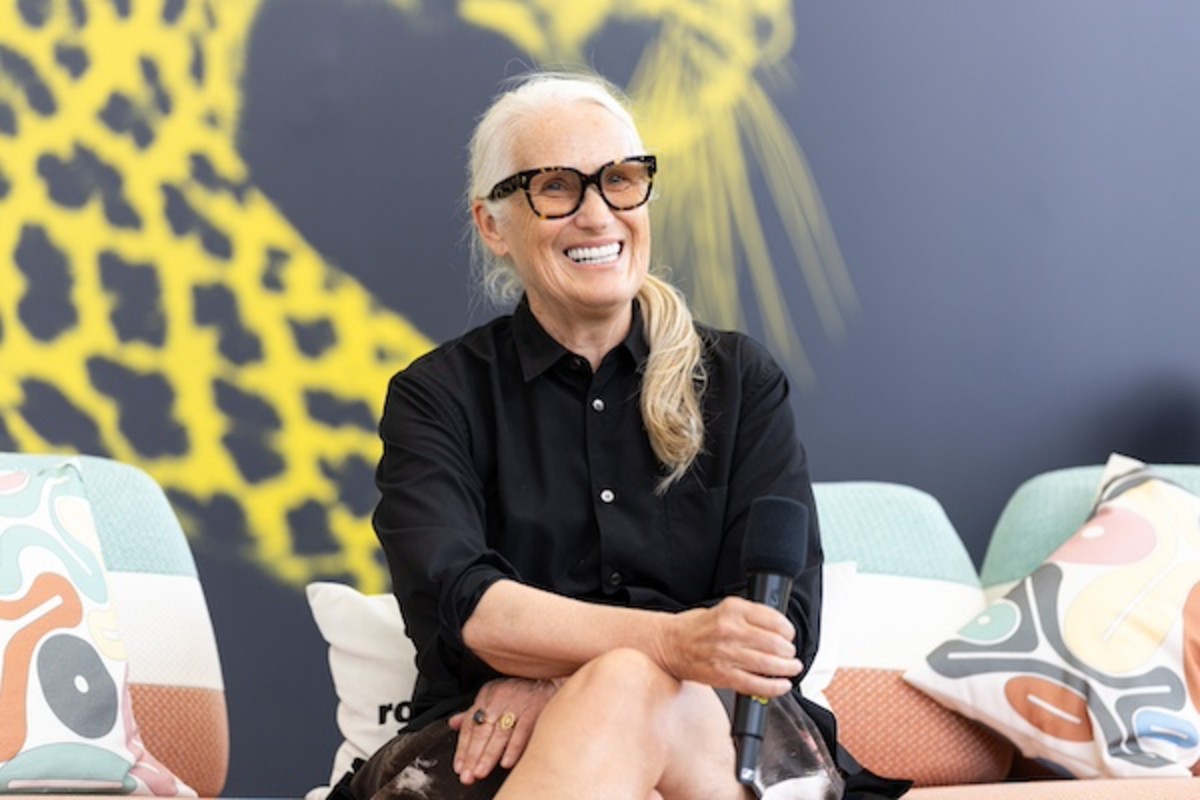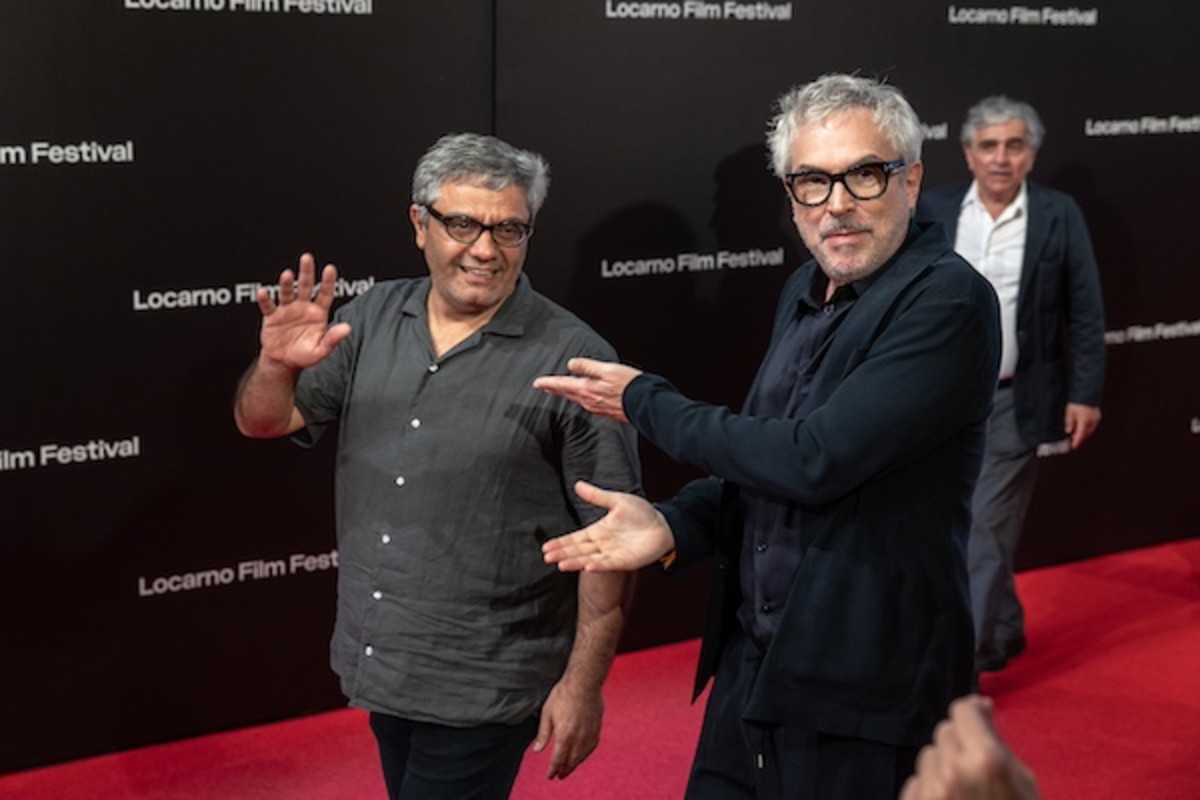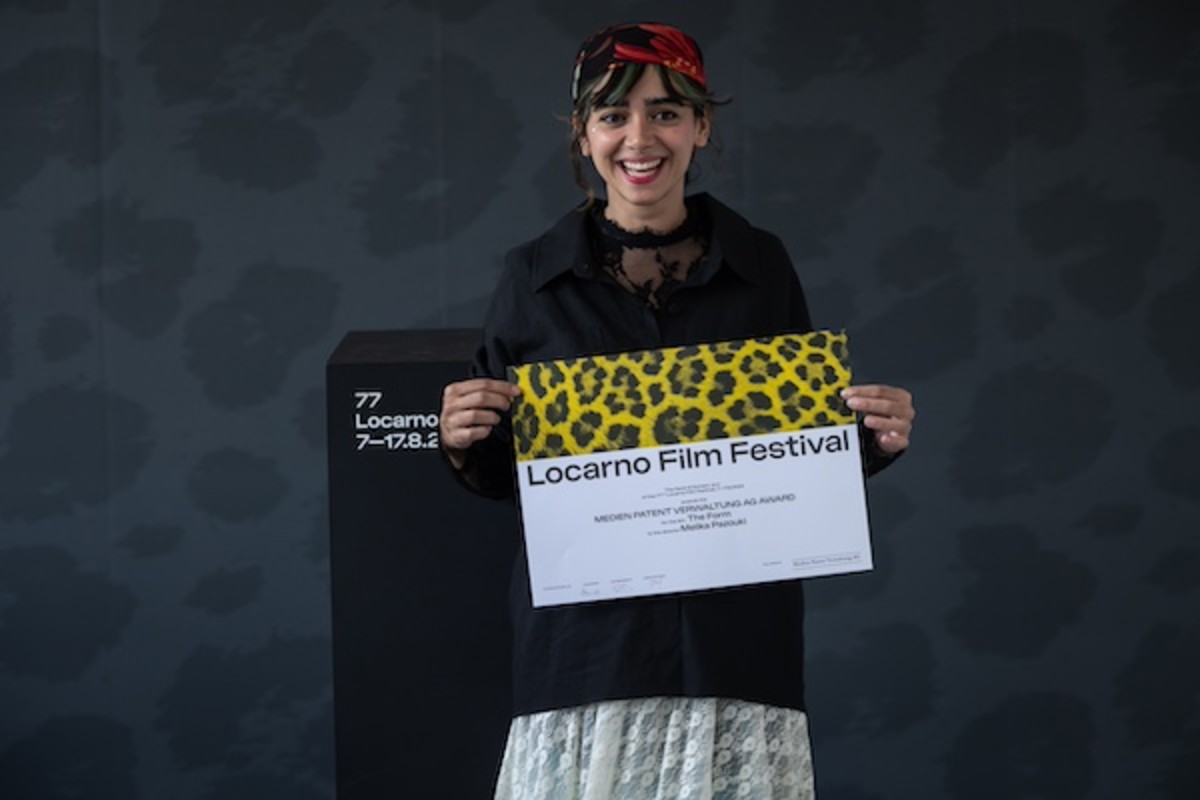For SCRIPT MAGAZINE
In this wide-ranging discussion, Mohammad Rasoulof reflects on his many years of dealing with censorship and the intelligence services, his imprisonments, his challenges in balancing the story for Iranian and non-Iranian audiences, and the time and safety constraints making the film clandestinely.
I first saw The Seed of the Sacred Fig last summer at the Locarno Film Festival on the Piazza Grande, which I highlighted for this publication. Both the film and Mohammad Rasoulof, received standing ovations. In a moving speech, Rasoulof stated: “I had to choose between prison and leaving Iran. With a heavy heart, I chose exile.”
Filming in secret, Rasoulof and his cast and crew risked their lives making this film. Once the Iranian government became aware of the film, Mohammad was forced to flee the country and now lives as a political refugee in Germany. The film is Germany’s official submission for International Feature for the Oscars.
The Seed of the Sacred Fig centers on an investigating judge on Tehran’s Revolutionary Court, who grapples with mistrust and paranoia as nationwide political protests intensify and his gun mysteriously disappears. Suspecting the involvement of his wife and his two daughters, he imposes drastic measures on his family as societal rules unravel. Metaphorically, the film’s title is the symbol of a tree killing its host to survive.
With the assistance of a translator, I spoke with Iranian filmmaker Mohammad Rasoulof over Zoom. In our wide-ranging discussion Rasoulof reflected on his many years of dealing with censorship and the intelligence services, his imprisonments, his challenges in balancing the story for Iranian and non-Iranian audiences, and the time and safety constraints making the film clandestinely.
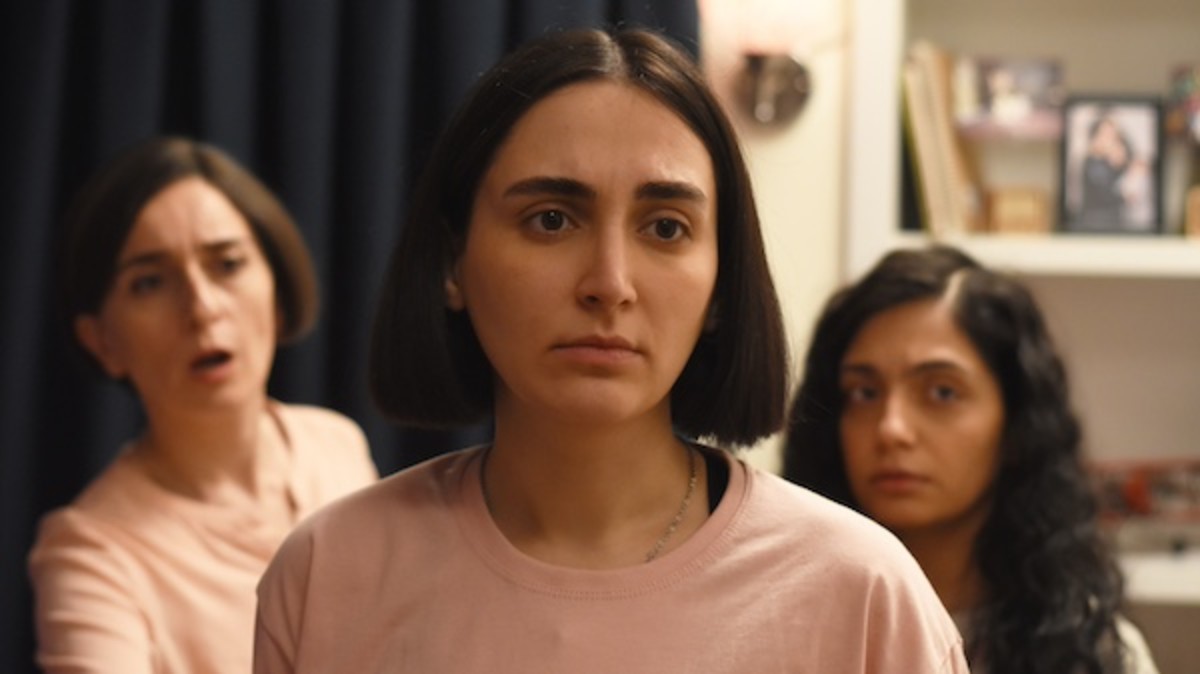
Kouguell: Let’s start with how the screenplay evolved and your initial inspiration.
Rasoulof: It’s been about 15 years that my issues with the censorship office have transferred into challenges and problems with the intelligence services. All these years this question was in my head that the people who sat across from me, who blindfolded me and interrogated me, I thought, what is this difference between these people and myself? Sometimes I even thought, what if there is a biological difference between him and I that makes him devote himself to an authoritarian system and that doesn’t let me do the same things? This curiosity has always been with me.
It was 2022 when I became arrested a few times. I was in jail the last time the Woman, Life, Freedom movement happened. It was the peak of this movement when a political prisoner went on a hunger strike and the rest of the prisoners and myself were watching him. At this time, a higher prison official came for a visit to see up close what this person was doing.
I was standing in the cell and watching everything when one of the officials came to me and started talking to me and took a pen out of his pocket and then gave me the pen as a gift. He said that he was having a lot of problems with his family and his children for having this job and cooperating with an authoritarian system and it was at that point that I wanted to write about a family like that. I thought if I write a story about a split between family and children I could also write about that devotion.
Kouguell: One theme of the film is the idea of submission and resistance as seen in Iman and his wife’s and daughters choices. Please talk about this more.
Rasoulof: The women’s movement in Iran has a long history and in the last episode of it, which was the Woman, Life, Freedom movement, we were caught by surprise. The new generation has a very different approach to the meaning of resistance and the meaning of life. In the previous generations, death was glorified in the fight and in resistance.
A big difference with the new generation is that they fight for freedom, they fight for life, and they glorify life and they put value in the act of fighting for life, not for death. So their perceptions of life, their understandings of life are very different than what the previous generations understood. The new generation has a very large communication with the world around them and it sees itself as part of the world around it through, of course, social media.
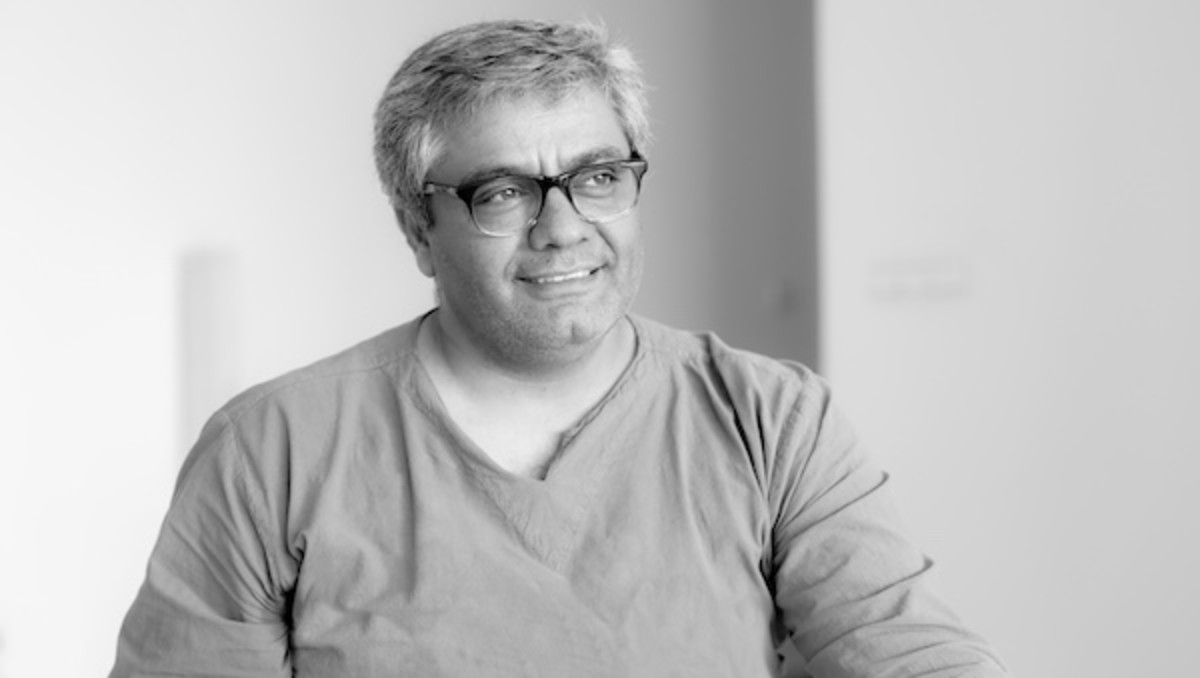
At the same time, the previous generation sees itself belonging to tradition and to the closed world in which it was born.
So I can summarize and say that the story is about the confrontation between awareness and ignorance. It’s an ignorance that comes from insisting on the previous beliefs and ideas, and it’s an awareness that’s coming from being open to the world and not wanting to submit to former beliefs.
One way it’s shown in my film is the character of the mother who gets all her information from the TV, whereas her children do not believe the news shown on TV, and they try to seek outside and be in touch with the world around them.
Kouguell: The four main characters (the parents and two daughters) are each distinct and poignant. While one might not agree or sympathize with some or even all of their actions, the film allows the viewers to put themselves in the character’s shoes. Please talk about developing these characters.
Rasoulof: There are many experiences that people have in oppressive situations in democratic situations they are not felt and not transferable. So, this form of storytelling creates certain problems. For instance, if I want to make the situation understandable for the non-Iranian audience, the way of life in Iran becomes so dramatized for the Iranian audience that they might find it meaningless or useless.
A big part of my energy [making this film] was spent on forgetting what has become normalized for me in these abnormal situations and putting myself in a situation that is more in tune and in sync with everyday life outside Iran.
There was another problem with making the film in a clandestine way; you have to make everything very quickly or you get exposed, so these contradictions are always very tense for me and take a lot of my energy to get to a level of thought that I want.
Kouguell: Each of these characters hide the truth in some form. Whether it’s the actual hiding of the gun or the daughter’s friend, there are many layers of secrets, deceptions and lies. Please elaborate on this.
Rasoulof: These oppressive situations are parallel to that in a family structure in which the father rules to do something to the members of it and it takes away the trust between the members. In this family, parallel to the patriarchy, girls are not allowed to express themselves the way they are. Not only they cannot express themselves in the family setting to their family members, but they cannot express themselves to members of the society in a social setting.
In my film, for example, the sequence with the family at the restaurant, the mother is telling them that they have to get used to having multiple perspectives of their lives, showing themselves in multiple ways, in their lives. The mother herself is somewhat rope walking between the children and the father, sometimes she leans towards the children, sometimes she leans towards the father, and she’s constantly trying to find an image that brings the two together and reflects on the other side.
The father believes by hiding his job from his children he’s protecting them. Therefore all the characters have reasons not to be themselves and not experience trust together.
Kouguell: The gun is the dramatic catalyst and symbolizes not only violence and a false sense of safety but paranoia. How would you describe it?
Rasoulof: The gun is a symbol of power and the father holds it as his way of getting close to the power he wants to get to. When he holds the gun, he’s one step closer to the position he wants to get. When he sees the situation in danger and sees the path he has been walking is under a threat, he becomes disheveled and worried inside. Gradually he shows a side of himself that is fully prejudiced and biased and we, as the audience, understand how the events unfold in the way that they merge with one another.
In the end, the younger daughter tries to bring her father back to himself and remind him of who he once was to them by broadcasting and playing sounds from the past. But it is now too late. We see how prejudice can take away humanity from us and cause violence.
